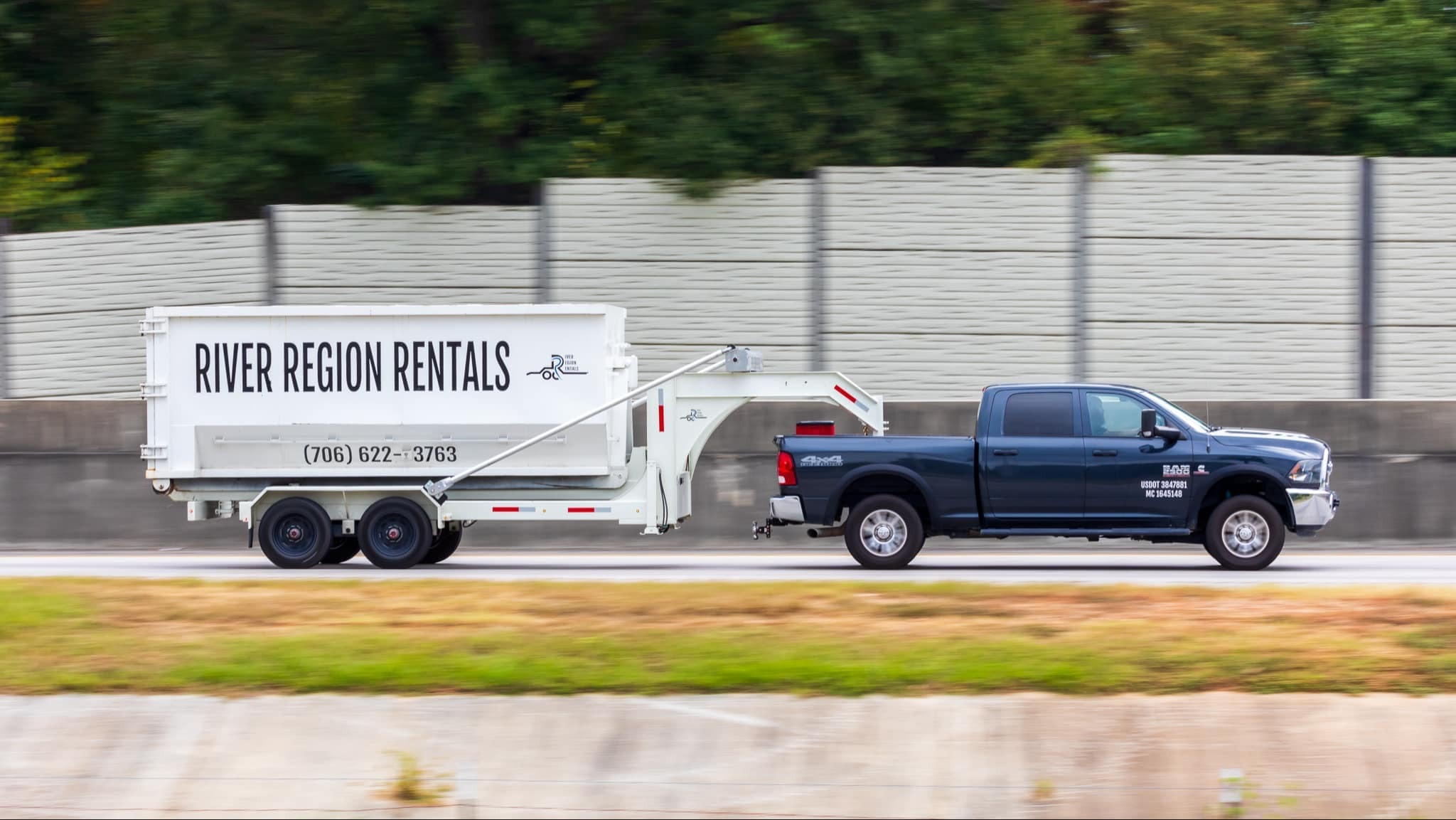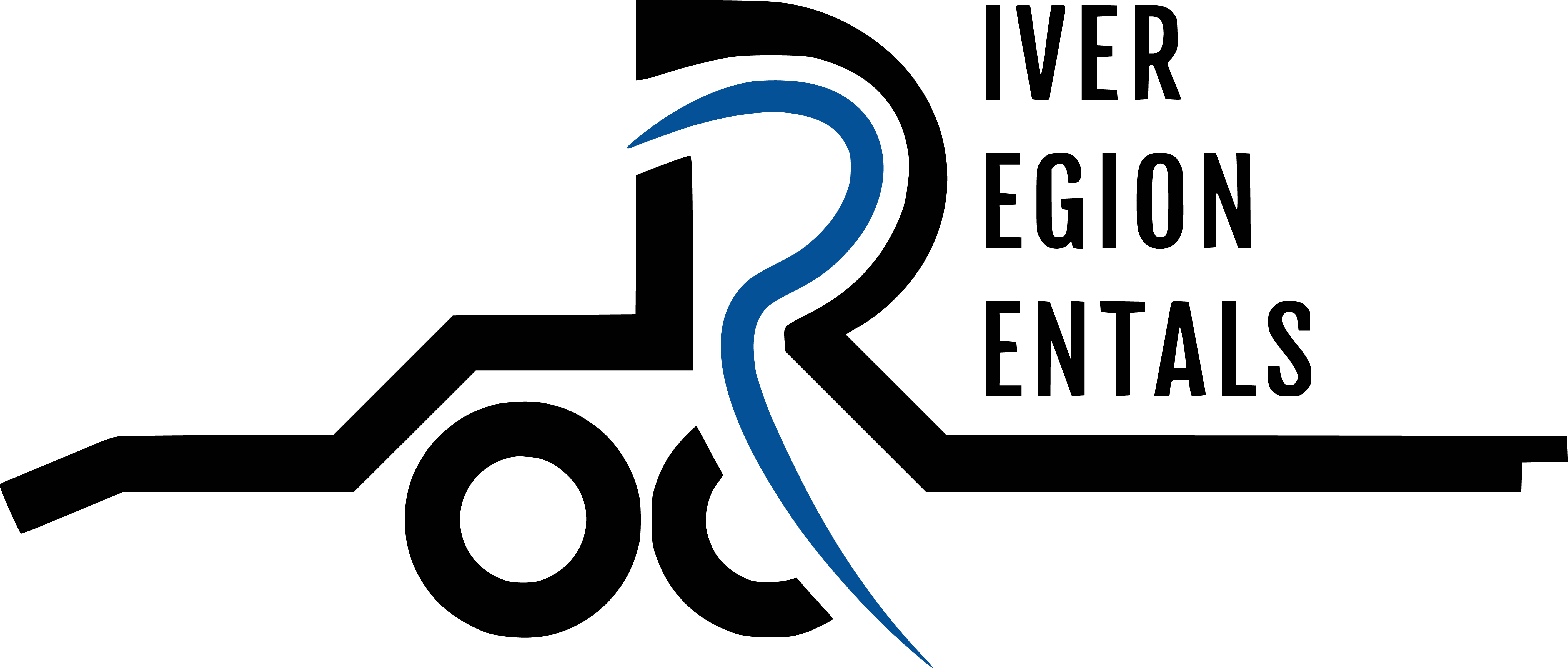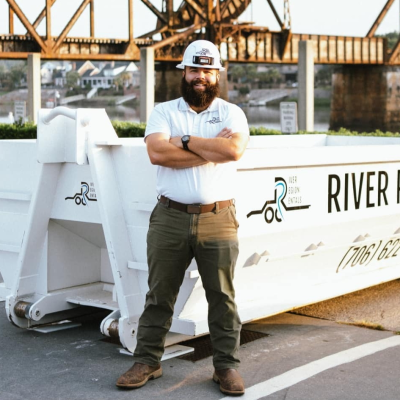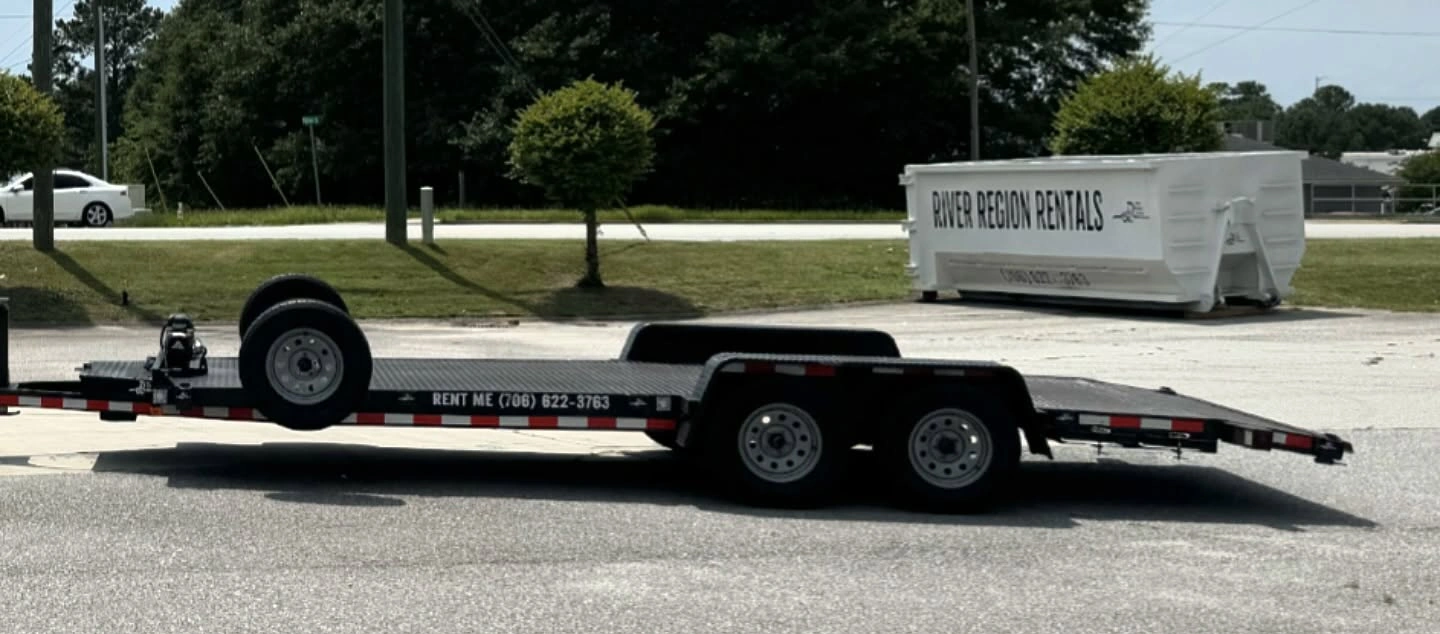
Introduction
Running a trailer rental business can be exciting and profitable, but it also comes with major responsibilities. To protect your business from costly fines, lawsuits, and accidents, you need to understand towing laws, insurance requirements, and federal and state regulations. This knowledge is essential for avoiding costly mistakes that could put your entire business at risk.
Federal Towing Rules and USDOT Compliance
If your trailers are used to transport goods or equipment across state lines, you must follow federal rules established by the FMCSA (Federal Motor Carrier Safety Administration). Here are some important regulations to keep in mind:
- USDOT Number: If your business involves interstate transportation, you likely need a USDOT number. This number identifies your business to federal authorities and ensures you’re operating legally. It must be displayed on the exterior of the power unit, along with the carrier name, and be plainly visible from 50 feet away (2 inches in height or greater in contrasting colors).
- Motor Carrier Number: If your business engages in interstate commerce and you haul cargo or contents on or within your trailers, regardless of whether or not you are "for hire," earn compensation, or the cargo is a commodity.
- Commercial Driver’s License (CDL): A CDL is required if the combined weight of your truck and trailer exceeds 26,000 pounds and/or if your trailer weighs more than 10,000 pounds. This is determined by Gross Vehicle Weight Rating (GVWR), Gross Combination Weight Rating (GCWR), Gross Axle Weight Rating (GAWR), and/or actual weight. Keep in mind, if you exceed the weight limits in ratings or actual weights, you can be placed "in commerce" unless you qualify for one of the valid exemptions such as agricultural use or recreational vehicles. Note: "NOT FOR HIRE" stickers and magnets carry no bearing with law enforcement officials or DOT inspectors.
- Safety Rules and Inspections: The FMCSA requires that trailers be regularly inspected and maintained. You must keep records of maintenance and repairs, and these records should be easily accessible in case of an accident or audit. This includes forms, stickers, and other records that must be maintained and displayed on and/or within the cab of the power unit.
Following these federal regulations helps ensure that your trailers are safe and compliant with the law. If you fail to comply, your business could face steep fines, penalties, or worse, you could be placed out of service and face revocation of your operating authority.
For more information, visit the FMCSA website.

State Towing Rules and Weight Limits
In addition to federal regulations, each state has its own towing laws and weight limits, and these can vary greatly depending on where you operate. Below are some general guidelines based on regional practices:
- Western States (e.g., California, Nevada): These states typically have stricter weight limits and regulations. In California, for instance, you may need additional licenses to tow heavy trailers.
- Southeastern States (e.g., Georgia, Florida): These states have more relaxed rules, but if the combined weight of your truck and trailer exceeds 26,000 pounds, a CDL is required.
- Northeastern States (e.g., New York, Pennsylvania): Rules in the Northeast can be highly variable. In New York, a CDL is needed for trailers over 10,000 pounds, and weight limits on roads and bridges are strictly enforced.
While the FMCSA sets a general framework, individual states determine how they comply with federal regulations and may adjust or enforce different standards. Therefore, it’s crucial to know both federal and state laws to avoid potential penalties.
Insurance: Protecting Your Business and Customers
Insurance is essential for any trailer rental business. It can protect you from massive financial losses if accidents or injuries occur. Here are three types of insurance you need to consider:
- Commercial Auto Insurance: Covers damage that happens while your trailers are being used for business purposes.
- General Liability Insurance: Protects your business if someone is injured or property is damaged while using your trailer.
- Physical Damage Insurance: Covers damage to the trailer itself, regardless of who is at fault.
Not having the right insurance can be disastrous. In the event of an accident, especially if it involves towing or hotshot trucking or other long-distance hauling, you could be held personally liable for damages, injuries, or even wrongful death claims. Without proper coverage, your business could face lawsuits that could potentially bankrupt you.
The Importance of Maintenance Records
One of the most critical but often overlooked aspects of running a trailer rental business is maintaining accurate records of inspections and repairs. These records not only help keep your trailers in good condition but also protect you in the event of legal trouble.
In the cases of Wing v. U-Haul and U-Haul Int’l v. Waldrip, U-Haul faced massive penalties because they failed to keep adequate maintenance records. In both cases, trailer accidents occurred due to poor maintenance, and U-Haul was found liable for not documenting repairs and inspections. These cases highlight how dangerous it can be to ignore maintenance and how failing to maintain proper records can lead to enormous legal and financial consequences.
How to Maintain Records and Inspect Trailers
To avoid these pitfalls, it’s essential to develop a system for documenting the condition of your trailers before and after each rental. This process not only helps keep your trailers safe but also provides a legal safeguard in case of an accident or lawsuit. Here’s a step-by-step approach:
- Pre-Rental Inspection: Before each rental, inspect key components like the tires, brakes, suspension, coupling, latches, safety chains, and lights. Make sure everything is in working order and safe for use.
- Post-Rental Inspection: After the trailer is returned, check for any damage or signs of wear. Pay close attention to areas that could cause safety issues if not maintained.
- Document the Condition: Create a checklist for each rental. Write down the condition of the trailer and any repairs that are needed. Store these records for several years.
- Photographic Evidence: Take photos of the trailer before and after each rental, especially of critical components like tires, lights, and latches. These photos serve as proof that the trailer was in good condition when it left your lot.
Keeping these records will help you avoid legal issues down the road. If an accident does happen, you’ll be able to show that you did everything right, which can protect you from liability.
Liability Blind Spots and Common Mistakes
There are several common mistakes that trailer rental businesses make that can lead to legal trouble. Here are some of the most important things to watch out for:
- Overloading Trailers: If your customer overloads a trailer and causes an accident, you could be held liable. Always ensure that your trailers are rated for the weight they’ll be carrying.
- Improper Licensing: Ensure that the driver renting your trailer has the correct license. If they don’t, and there’s an accident, you could be on the hook for damages.
- Lack of Documentation: Without proper records of maintenance and inspections, your business is vulnerable to lawsuits. Documenting and photographing the trailer’s condition before and after each rental can save you from major legal headaches.
Consulting with Legal and Industry Experts
Even if you follow the rules carefully, it’s always smart to consult with a local attorney who understands business law, transportation law, and personal injury law. Laws and regulations can change, and an attorney can help ensure your business stays compliant.
It’s also a good idea to check with local and state authorities to make sure you’re following the latest regulations. Every state has different rules, and staying informed can save you from future problems.
Conclusion: Stay Safe and Legal
Running a trailer rental business involves a lot more than just renting out equipment. To protect yourself from fines, lawsuits, and accidents, you need to understand both federal and state towing laws, maintain proper records, and ensure you have the right insurance. At River Region Rentals, we take these responsibilities seriously, and we encourage other businesses to do the same.
If you want to learn more or need help with your trailer rental business, feel free to visit us at www.RiverRegion.Rentals or call us at (706) 622-3763. Please like and follow us on Facebook and Instagram @RiverRegionRentalsLLC. We’re always here to help.
By maintaining accurate records, following the law, and consulting with professionals, you can protect your business and avoid costly mistakes.



